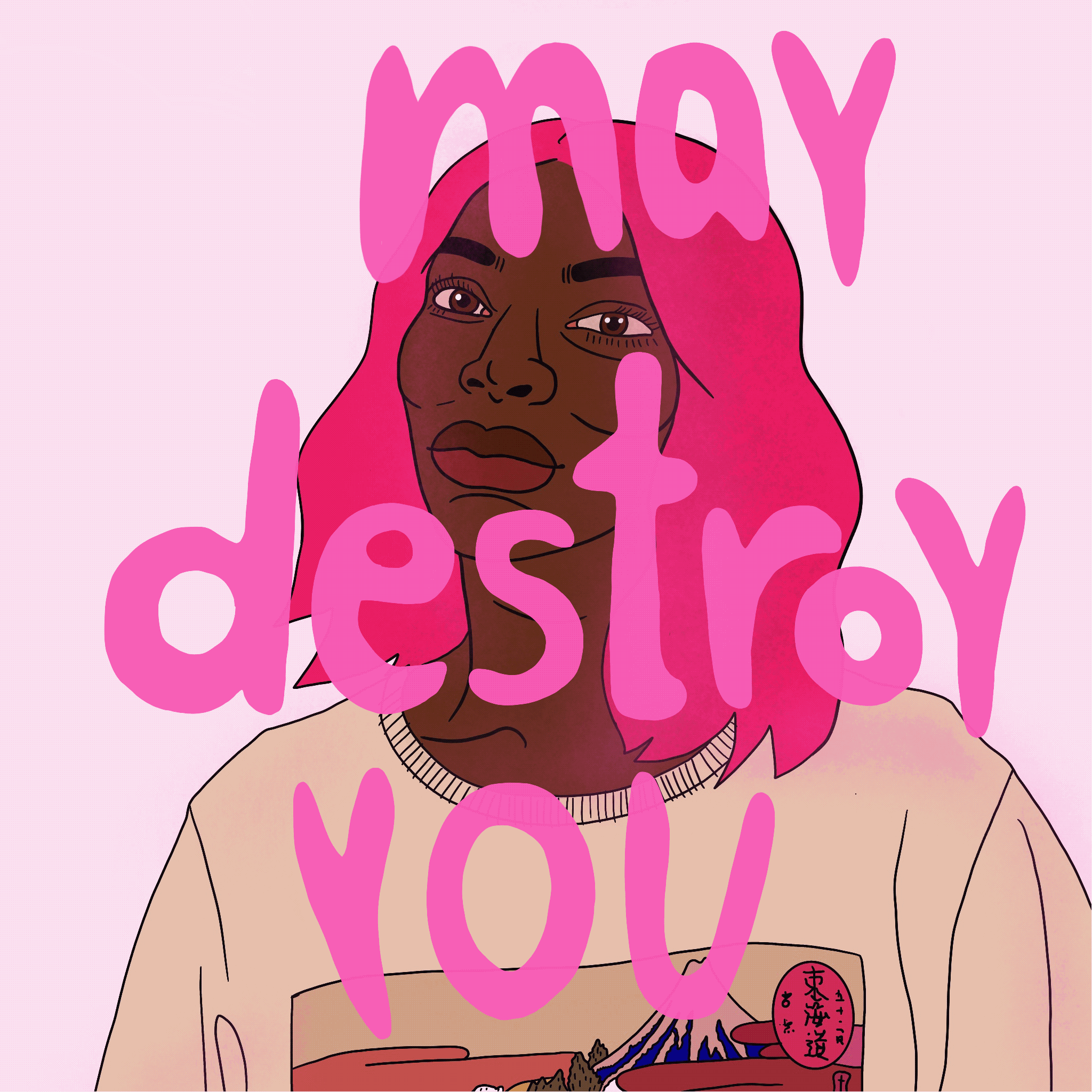TW: Rape and sexual assault
Michaela Coel, the creator of the hit TV show ‘I May Destroy You’, admits herself that her new work can only be described as being about ‘everything’. While this does not help in trying to write a review of the show, it is hard to disagree with this seemingly vague analysis. It is indeed a show about everything. However, the beauty of the show is that it manages to fit in seemingly disconnected themes such as friendship, the digital age, generational family trauma and reproductive health, in an organic, non-forceful but intellectually engaging manner to the backdrop of a banging soundtrack and the striking colours of South London.
Having said that, the central theme that structures the 12 episodes remains sexual assault and consent, after Arabella, a young black writer, is left navigating her trauma after the experience of a brutal rape in a London bar in Episode One, an event based on Coel’s actual personal experience. In the episodes that follow we watch Arabella manage her new life with her two best friends Terry and Kwame and other characters from her past and present that accurately paint us a picture of the complex reality of modern sexual relationships.
While Arabella digests her own experiences both online and offline and with a varying degree of help from the criminal justice system, other sexual scenarios are explored which not only incites us to examine our own past sexual experiences but aids us in the understanding of consent as a widespread societal issue. Terry remembers a wild night out which ends in a threesome which she realises later she might not have had the full information on; Kwame hooks up consensually with a Grindr match only to be forced down on the bed when he wants to leave; Arabella changes her view on one of her experiences of a man taking off the condom mid-sex when she listens to a popular podcast about the issue. Meanwhile, the only consensual sex which is shown manages to leave an equally important mark – one episode depicts Arabella’s partner casually pulling out her bloody tampon before sex, allowing for an extremely honest and necessary portrayal of the messiness of sex.
Borders are not only pushed and tested on the issue of rape, but also on how people deal with the aftermath of rape. Arabella, while clearly being portrayed as the victim, is not always depicted as a likeable person. The show allows her character room to make mistakes and she often does horrible things to the people around her; equally the friends that are helping her through her experiences are not always shown as making the “right” decisions either. All characters are allowed to be fully-fledged human beings, the sum of more than their past experiences, their race, gender or sexuality. They are also allowed to be madly happy, successful and extremely funny. The most surprising thing about the show is how hilarious it is, providing necessary relief for the serious issues it speaks to.
Really then, the genius of this TV show is that it goes one step further than being merely about rape. Instead, it is a study on trauma and more specifically trauma as a societal problem. Cleverly fusing in the personal and political in this post-‘Me Too’ era, and refusing to provide simple or clear answers regarding these issues, ‘I May Destroy You’ offers us the necessary questions, leaving doubt as to who is destroying who in this show. This is epitomized by its ambiguous ending, taking a refreshing turn away from the typical rape-revenge drama, demonstrating that in real life there is no clear way to deal with such trauma.
However, that does not mean that we should not try. With all its nuance and evasion of clear resolutions, there is one resounding takeaway from this boundary-breaking piece of art: we need a wider, more urgent discussion on consent. Coel is taking a courageous step forward in this conversation by offering up a heartbreakingly honest, hilarious and altogether fully digested examination of her own trauma, which merely feels like the beginning of a much deeper discussion on the rape epidemic in our society. One thing is for sure, if this is the type of content that is finding a platform in our society, then it is the first step in the right direction on a long road ahead.
Illustrated by Dorottya Juhász.

